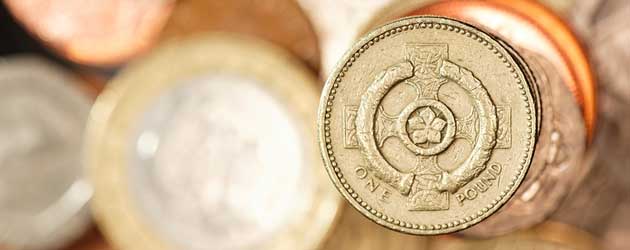 The Pound to Euro exchange rate (GBP/EUR) fluctuated within a tight 0.3 cent range yesterday as Eurozone inflation shrunk and UK Construction printed poorly.
The Pound to Euro exchange rate (GBP/EUR) fluctuated within a tight 0.3 cent range yesterday as Eurozone inflation shrunk and UK Construction printed poorly.
The future direction of the currency pair will hinge on this morning’s hugely influential dataset. The UK Service Sector print is expected to show an improvement of 51.5 in March, following a strong score of 51.8 in February. The Bank of England is likely to hold the benchmark interest rate at its current record low of 0.5%, and the UK Central Bank is predicted to refrain from making any additions to its current quantitative easing target of £375 billion. The European Central Bank is unlikely to deviate from its current 0.75% interest rate.
Under these circumstances the Pound would have the potential to rally against the Euro because the positive outcome would almost certainly eradicate any lingering triple-dip recession fears. At the moment Sterling is being dragged down by concerns over the health of the British economy so far in 2013. Comments from BoE policymakers, suggesting that higher rates of inflation could be accepted, have also created downside pressure for the Pound in relation to QE bets. A strong Service Sector print, alongside a refusal to up the quantitative easing game from the BoE could give the Pound a strong boost.
Conversely, a soft Services PMI figure – which accounts for around 70% of British economic output – would lead to a storm of triple-dip lightening bolts, and the resultant thunder could even nudge the BoE towards further asset purchases. This would be a massive blow for the Pound.
In terms of the ECB rate decision, there is less room for deviation, as European policymakers appear reluctant to reduce rates through fear that credit is not reaching the real economy. Indeed, ECB Council Member said last month:
“I think that the monetary policy of the ECB is adequate to the economic situation. I personally am not sure in this specific situation that a lower interest rate would have much of an effect.”
If the European Central Bank did decide to introduce a rate cut below 0.75% there is a strong likelihood that the single currency would come under significant selling pressure.
The other important thing to consider tomorrow is ECB Chief Mario Draghi’s policy statement. Although the headline rate is unlikely to be altered, the tone struck by the ECB head honcho is likely to come under a lot of scrutiny.
Back in July of last year Draghi earned the nickname ‘Super Mario’ as his comments that the “Euro is irreversible” effectively parted the sea for a clear passage of calm in Eurozone markets. Earlier this year, in January, the plucky Italian in a boiler-suit lifted markets once again when he said that “positive contagion” was breeding confidence in the currency bloc. His ability to shape sentiment was exhibited once more in February when his remarks on the negative effect of a strong Euro exchange rate sent GBP/EUR soaring by over 2.0 cents.
With this in mind, a dovish statement focusing on the problems in Cyprus, or mentioning lower inflation, could hurt the single currency. However a slightly more hawkish tone, with reference to growing global growth, could give the Euro a moderate a boost.

Comments are closed.